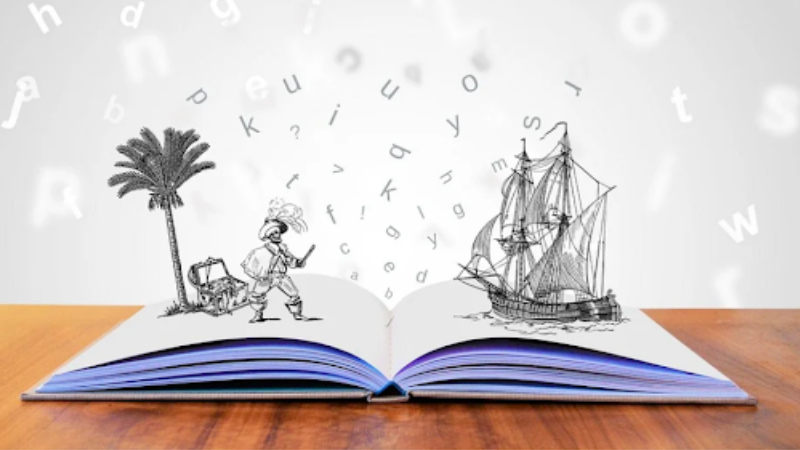“Mirror, mirror, on the wall, who is the fairest of them all?”
Do these words ring a bell of familiar good old childhood days?
Have you ever wondered how well you remember this and why, even after ages, these words still remain etched in your memory?
This is the magic of STORIES.
Stories are but a reflection of life and time. They are an effective and expressive medium that can be inculcated in daily life to teach life skills. The fact is that people love hearing stories, regardless of age, gender, or generation. We can enhance children’s cognitive and socioemotional development through storytelling. Relatable plots and characters fascinate and engage children and help them develop life skills.
It is essential for everyone to imbibe life skills. We find opportunities to develop these skills in every aspect of our daily lives. Our initial years hold great importance in helping us prepare for challenges in healthy ways. Life skills help children to comprehend and analyze situations and find creative solutions to problems using decision making and problem-solving skills, critical thinking, empathy, and effective communication. Children learn to work independently and gain confidence in their skills.
Stories-a source of infotainment
One of the best ways to learn life skills in school and at home is through stories and anecdotes. Age old stories like Akbar and Birbal and stories from the Panchatantra leave children with lessons that stay with them for life because of the engaging and interesting manner in which they are told. These stories play an important role in providing insight into our rich culture and inculcating values in our lives.
As students grow, the incorporation of anecdotes into their lives helps in making them understand the subject in an interesting way and results in proper comprehension and retention.

Introduction to Emotions
Storytelling sessions unleash a world of imagination and transport young ones to a different realm where animals can talk and objects can think and feel. Every time a child looks at the environment, they find something wonderous and relate these things to stories. A cupboard may be the entrance to a new world and brooms may fly. A Big Friendly Giant leaves us with sweet dreams while brave children solve great mysteries and puzzles. Thus, soft emotions like empathy, understanding, care, and concern enter children’s perception as their universe combines with the world of stories.
Roald Dahl’s “Matilda” shows us how a young girl brings down the horrid Miss Trunchbull through her creativity and courage. The Harry Potter series reminds us that there is magic in friendship and love. Ruskin Bond’s “The Blue Umbrella” shows children the wonders of nature and the value of kindness. These stories instill confidence and courage in children.
Power of Narration
Story sessions help the students to assimilate, process, and incorporate ideas in one’s life. For example, stories like Enid Blyton’s “The Faraway Tree”, “Malory Towers” and “Famous Five” encourage children to explore and develop empathy for people around them. They show us how hope and courage help us deal with the most difficult of situations. It encourages students to think beyond the ordinary and use their imagination to paint a world full of amazing characters. Surprises and twists in the story or the introduction of new characters helps children understand how people are different from each other. Using props and illustrations to narrate stories shows them how multiple mediums can help make the story more engaging and interesting. The way stories remain etched in our memories shows us the power of narration.

Linguistic Boon
Besides inculcating life skills, story narration helps children learn new styles of writing and increases their vocabulary. It may become a creative outlet to express emotions and explore the world of their imagination. Here are some of the benefits of writing, narrating, and listening to stories-
- Stimulate imagination and curiosity.
- Instill love for languages.
- Motivate children to read and explore more.
- Improve their listening and comprehension skills.
- Encourage them to think creatively.
I would love to hear your child’s favorite story or any anecdote you remember from your life. Let’s acknowledge the magic of stories together and realize how stories can be a great opportunity to help children acquire life skills.

